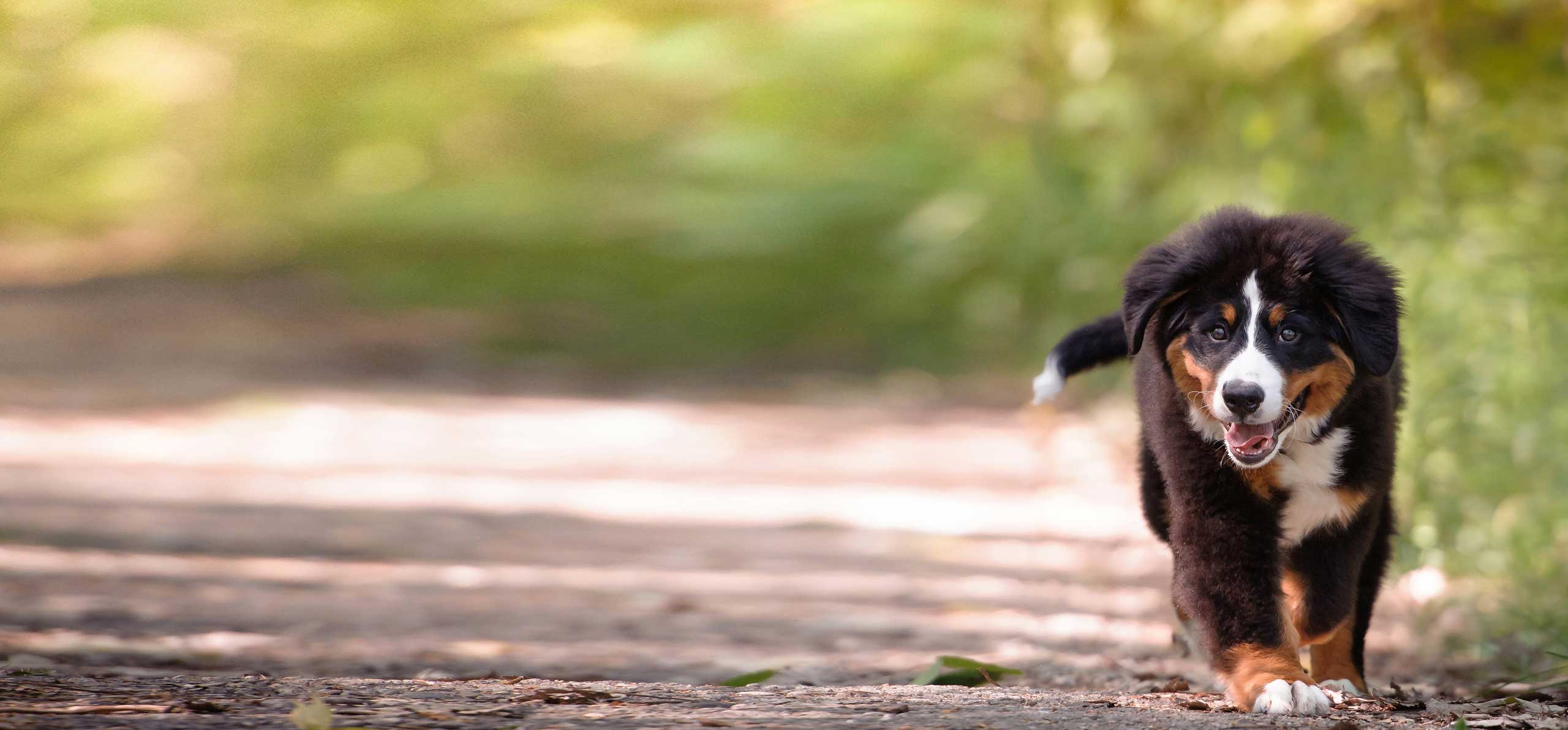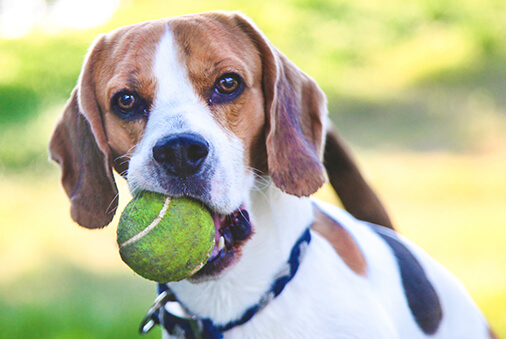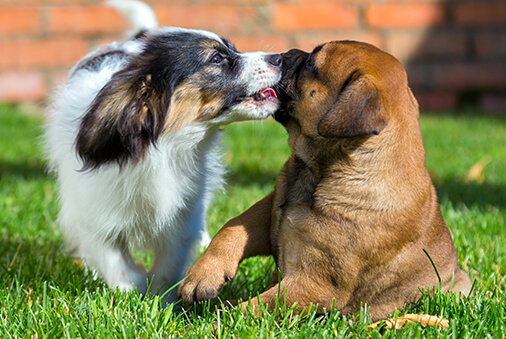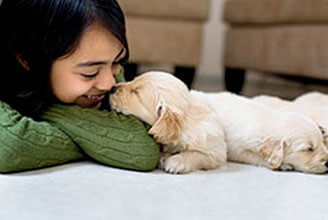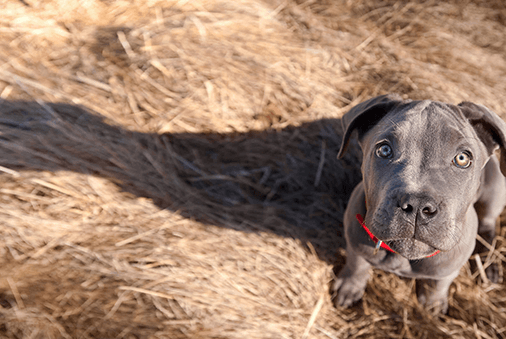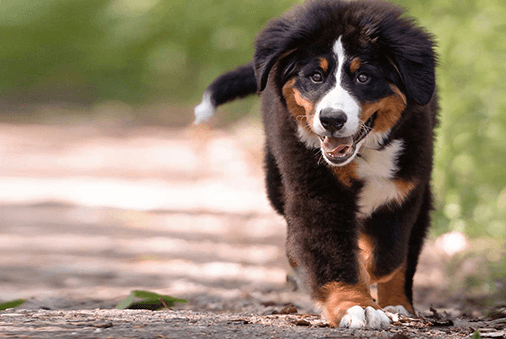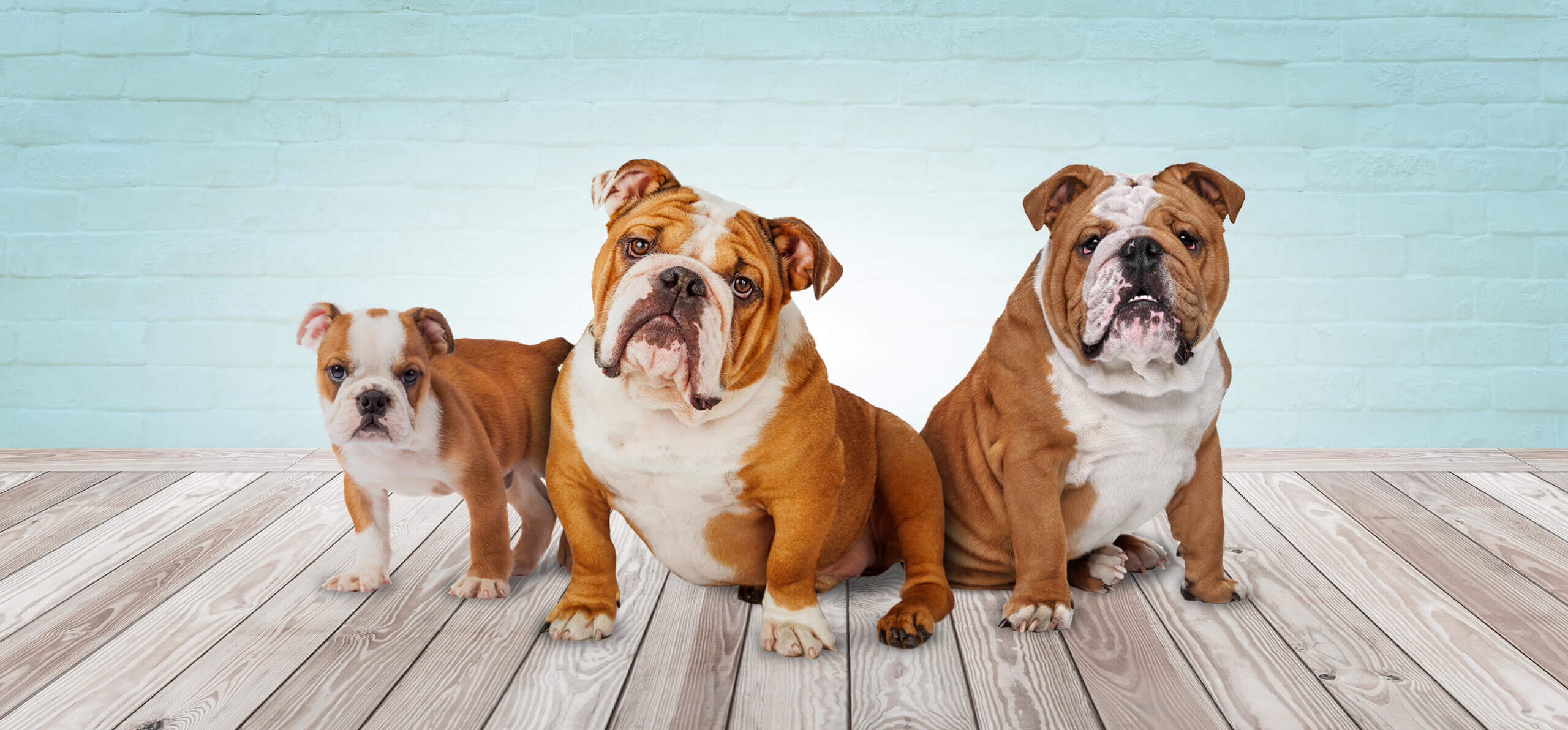8 to 12 Weeks | 3 to 6 Months | 7 to 12 Months
Becoming a Healthy Adult Dog
By now you’re seeing how fast pooches grow as they eat high-quality puppy food, socialize with people and other pets, learn new tricks, and see their vets regularly.
Here’s how to help your puppy thrive as he or she matures into a healthy, happy adult dog.
Healthy meals for 7-month to 1-year olds
Your pup should still be eating high-quality puppy food but it’s usually recommended that you switch from three to two meals per day. Pay attention to the calorie content and feeding guidelines specified for the food to be sure your pup is meeting his nutritional needs.
Twelve months old is when most breeds are considered an adult. Before your puppy's first birthday is a good time to ask your vet about transitioning to an adult formula like BLUE Life Protection Formula Chicken & Brown Rice, with the vitamins, minerals and nutrients made to meet the specific nutritional needs of adult dogs.
Exercise, Exercise, Exercise
No wonder dogs get excited when you reach for their leash or just say the word “walk.” Like humans, canines need exercise to help maintain a healthy state of mind and body. Plus, they were born to move.
Many training and behavioral problems stem from a dog’s lack of activity and boredom. Daily activity like a brisk 30-minute walk helps your pup channel excess energy while he bonds with you.
Work up to other activities and add in running, jumping, fetching, and tug of war to ensure your pup gets the proper workout.
IMPORTANT: Always check with your vet to be sure it’s safe for your pooch to take on more strenuous activity.
-
Long runs aren’t recommended for pups until they’re at least 18 months old and their bones have finished growing.
-
Brachycephalic breeds with short, flat noses like pugs and bulldogs may have trouble breathing during rigorous exercise.
-
Never push your pup. Always let him set his own pace and stop when he’s tired.
Be sure your pup has access to plenty of water during and after exercise.
Separation anxiety can rear its head at this stage, even if your best pal never showed signs of it before.
You’re leaving?
Tip: Leave your pup alone and calmly return within a few minutes, increasing the time you’re gone a bit longer each time. These dry runs will help your pup adjust to the times when your family’s away longer.
Your pup may also have setbacks in housetraining and other good behaviors if there are changes to his routine.
Tip: Stay firm and go back to the basics: strengthening good behavior with praise and positive reinforcement until he adjusts to the changes.
First Birthday Come And Gone?
We hope it was a happy one with many healthy treats to celebrate your first year with your best pal.

